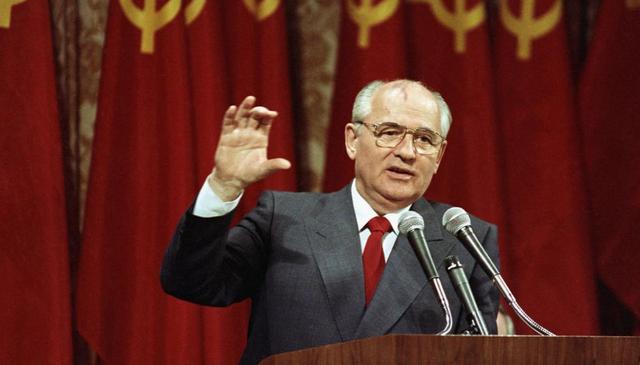Mikhail Gorbachev demise: All about Soviet Union’s last President who was Russia’s pariah
Mikhail Gorbachev, the former head of the Soviet Union and a key figure in the conclusion of the Cold War, passed away on Tuesday, August 30

Mikhail Gorbachev, the former head of the Soviet Union and a key figure in the conclusion of the Cold War, passed away on Tuesday, August 30, at the age of 91. When Gorbachev came to power in the year 1985, he opened up the former USSR (Union of Soviet Socialist Republics) to the outside world and implemented a number of domestic reforms.
However, he was unable to halt the Soviet’s downfall, which gave rise to contemporary Russia. As per a statement released by the Central Clinical Hospital in Moscow, Gorbachev passed away after a long illness.
Mikhail Gorbachev, the former head of the Soviet Union and a key figure in the conclusion of the Cold War, passed away on Tuesday, August 30, at the age of 91. When Gorbachev came to power in the year 1985, he opened up the former USSR (Union of Soviet Socialist Republics) to the outside world and implemented a number of domestic reforms. However,
he was unable to halt the Soviet’s downfall, which gave rise to contemporary Russia. As per a statement released by the Central Clinical Hospital in Moscow, Gorbachev passed away after a long illness.
As per reports, Gorbachev’s health had been deteriorating in recent years, and he had been in and out of the hospital. Although the reason for his death has not been disclosed, foreign media reported in June this year that he had been hospitalised after being diagnosed with a kidney ailment.
Who was Mikhail Gorbachev?
Gorbachev was born into a peasant family on March 2, 1931, not far from Stavropol, and unveiled some iconic policies such as perestroika and glasnost while he was in power, which helped the Soviet economy to open up and liberalise society in the late 1980s. Along with handling the Chornobyl disaster in the year 1986, he coordinated the withdrawal of the USSR’s soldiers from an almost decade-long military campaign in Afghanistan. The last President of the Soviet Union even engaged with Western leaders on weapons control.
In 1985, Gorbachev assumed the role of de facto president of the Soviet Union and General-Secretary of the Soviet Communist Party. At the age of 54, he was considered to be the youngest member of the ruling council which is also called the Politburo.
Gorbachev did not take office with the intention of loosening the Soviet Union’s hold on eastern Europe, instead, he wanted to revitalise its culture. His Perestroika policy tried to bring some market-like changes to the state-run system since the Soviet economy was battling for years to stay up with the United States.
Gorbachev launched an astonishing array of reforms despite holding the presidency for less than seven years. He had established significant weapons control agreements with the US and further refrained from interfering when eastern European countries stood up against their Communist governments. He also put a stop to the brutal Soviet war in Afghanistan that had been raging since 1979.
The last Soviet leader’s glasnost, or openness, policy, was also criticised by some people. It also gave rise to nationalist feelings in many areas of the nation, which ultimately jeopardised the country’s stability and brought about its dissolution.
After a bungled coup attempt by communist hardliners failed in 1991, Gorbachev decided to dissolve the Soviet Union and resign from power. Notably, he is regarded as a reformed architect in the West who helped to pave the way for the Cold War’s conclusion in 1991, when there were severe hostilities between the Soviet Union and Western countries like the US and Britain.
Besides this, Mikhail Gorbachev received the Nobel Peace Prize in 1990 for “the leading role he played in the radical changes in East-West relations”.



